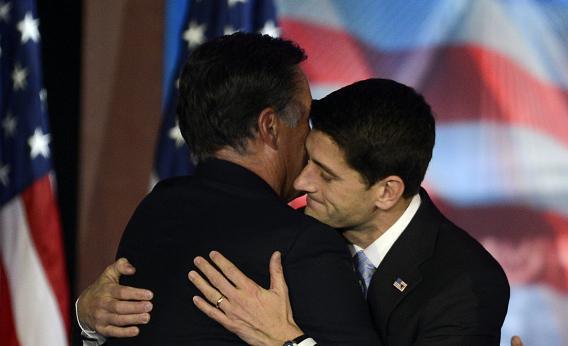The No. 1 book about American politics that I wish more people would read is Donald Kinder and Cindy Cam, US Versus Them: The Ethnocentric Foundations of American Public Opinion. Absolutely everyone knows that race and ethnicity are central to American politics. Everyone knew last week that Obama would do better with middle-class black voters than with middle-class white ones. Everyone understands that courting the “white working class” is different from courting working class voters in East L.A. But excessive politeness tends to lead pundits to bracket this knowledge off the importance of race and ethnicity from analysis of particular political controversies. Yet that’s foolish. We just had a whole campaign in which the candidates talked endlessly about taxes and Medicare and then skin color and national ancestry turned out to be huge drivers of voting behavior just as they are every year.
The book has some wise things to say about how to bring “the issues” together with demographics by looking at, among other things, how “ethnocentric” (an attempt to be a bit less charged than calling people racist) different classes of voters are. And as it turns out for all voters ethnocentricity is a statistical correlate of views on other matters. Among African-Americans, for example, more ethnocentric people are more dovish on foreign policy.
But among white people, the big issue is that ethnocentricity drives attitudes about social welfare spending. And not in a totally unambiguous way.
When it comes to programs targeted at the poor, ethnocentrism correlates with stinginess (you may have to take my word for it that that’s what this math means):
But when it comes to programs targeted at the elderly, ethnocentrism correlates with generosity:
In political terms this means you can’t separate the GOP’s status as a narrow ethnic party for non-Hispanic whites from its overall economic messaging. The GOP is clearly going to be an anti-tax and pro-military party, which means it needs to be at least to some extent a party of fiscal restraint on social welfare programs. A policy of focusing budget cuts on high-cost programs for the elderly while trying to minimize harm to anti-poverty programs might help appeal to religiously observant non-whites but would tend to alienate white racists. Conversely, a policy of focusing budget cuts on anti-poverty programs while trying to minimize cuts to elderly-serving programs would be well-designed to cater to the views of white racists but have little to offer other nonrich voters.
If you look at the various iterations of Paul Ryan’s budget plansthey basically fit the latter path. Anti-poverty programs face sudden sharp cuts. Social Security is generally not addressed. Medicare cuts are delayed a decade, phased-in slowly, and are smaller in scale than the cuts to anti-poverty programs.
Now to be clear—there’s no particularly good reason for people to react like this. Blacks and Latinos benefit from Social Security and Medicare and most of the people on food stamps and Medicaid are white. But the politics are what they are. And so the point is that if you were to try to rework the GOP coalition to be less white-centric, you’d want to rethink some ideas that don’t have any literal ethnic element to them. At the same time, anything Republicans do to position themselves squarely as a party that wants to cut Social Security and Medicare would risk sending elements of the white racist vote over to the Democrats—especially in races where they don’t have a black nominee.
